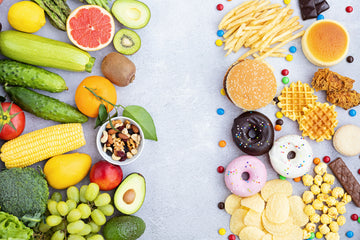Do you see the glass as half full—or half empty?
I know, I know. It sounds like something from a cheesy motivational poster. But hear me out—that small difference in how you see things can change just about everything in your life.
Optimism isn't just about feeling good or thinking happy thoughts. It can actually help you live longer, recover from setbacks faster, and enjoy better overall health. And here's the really cool part: even if you're naturally more of a glass-half-empty person, you can train your brain to be more optimistic.
Let's talk about how.
The Science Behind Seeing the Bright Side
Optimism is more than just a personality trait—it's a measurable mindset with real health consequences.
There was this huge study published in the American Journal of Epidemiology that followed over 70,000 people. What they found was pretty striking: optimistic people lived about 15% longer and were way more likely to make it to 85 or beyond. The researchers think optimism might actually influence how we age biologically and how well we fight off disease.
Another study in JAMA Network Open showed that optimists had lower risks of heart disease and early death. It turns out they were more likely to exercise, eat well, and manage stress—all things that add years to your life.
What Optimism Does to Your Body
Optimism isn't just a mental game—it creates real physical advantages.
Researchers at Harvard's School of Public Health found that optimistic people had lower levels of inflammation and stronger immune responses compared to pessimists. Their bodies were literally in better shape.
There's also research from Psychological Science showing that optimism can lower cortisol levels and reduce the impact of chronic stress. Less cortisol means less inflammation, which means lower risk for all kinds of problems—heart disease, metabolic issues, even cognitive decline.
Basically, when you're optimistic, your body spends more time in "rest and repair" mode instead of constantly being on high alert.
Can You Actually Learn to Be More Optimistic?
Yes. And this is where things get really hopeful (pun intended).
While some of your outlook is influenced by genetics and upbringing, optimism is largely something you can develop. Dr. Martin Seligman at the University of Pennsylvania pioneered the field of positive psychology and proved that people can shift from pessimism to optimism through intentional practice.
Simple things like keeping a gratitude journal, reframing negative thoughts, and visualizing success have been shown in studies to significantly boost optimism and reduce symptoms of depression.
Your brain is way more flexible than you think. You really can rewire it for hope.
Optimism and Success (Not Just Money)
Optimism doesn't just make you happier—it can make you more successful too.
Research in the Proceedings of the National Academy of Sciences found that optimists are more likely to set long-term goals, push through obstacles, and perform better at work.
But success isn't just about money. Optimism builds what I'd call emotional wealth: stronger relationships, better self-esteem, and a deeper sense of meaning in life.
How to Build an Optimistic Mindset
If optimism doesn't come naturally to you, don't worry. You can start small.
Bookend Your Day with Positivity: Write down one positive thing each morning. Before bed, note one thing you're grateful for. It takes two minutes.
Reframe Your Challenges: When something goes wrong, instead of thinking "Why does this always happen to me?" try asking "What can I learn from this?"
Choose Your People Wisely: Positivity really is contagious. Spend more time with people who lift you up, not drag you down.
Visualize What You Want: Studies show that mental imagery activates the same brain pathways as actual success. Picture yourself succeeding, and your brain starts to believe it's possible.
Living the Half-Full Life
Here's the truth: optimism isn't about denying reality. It's not pretending everything is perfect when it's not.
It's about believing you have some influence over what happens next. It's about choosing to focus on possibilities instead of limitations.
The Mayo Clinic reports that optimism improves coping skills, emotional health, and resilience when life gets hard. It doesn't just change how you see the world—it changes how your body and mind respond to it.
So this November, as you gather around the table with people you care about, try seeing your glass as half full. Be grateful. Be hopeful. And remember—optimism, like gratitude, is a choice you get to make every single day. And it keeps paying off long after the pumpkin pie is gone.




